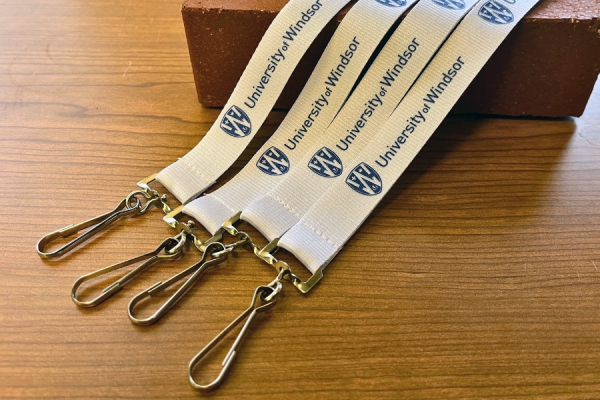 Jonathan Houser and Liz Sylvestre are co-chairs of a symposium to showcase undergrad research at the 2025 conference of the Canadian Society for Chemistry.
Jonathan Houser and Liz Sylvestre are co-chairs of a symposium to showcase undergrad research at the 2025 conference of the Canadian Society for Chemistry.
A pair of students from the Department of Chemistry and Biochemistry want their fellow undergraduate researchers to show off their contributions at the next Canadian Society for Chemistry Conference and Exhibition (CSC 2025).
Liz Sylvestre and Jonathan Houser are co-chairs of a new symposium taking place for the first time at CSC 2025: “Emerging Scholars.”
“The idea is to promote undergraduate research,” says Houser, a biochemistry major.
“We’re encouraging undergraduates from across Canada and the U.S. to present their work and show how that has helped them academically as well how it has helped their supervisor’s research program.”
Participants will have an opportunity to present their research, attend a panel discussion, and network with fellow undergraduates as well as with professors and industry representatives.
Both students work in the Department of Chemistry and Biochemistry’s Trant Team lab run by Prof. John Trant, and attended the 2024 conference in Winnipeg where they won prizes for their research posters.
“At CSC 2024 there were only 60 undergraduates out of 1,300 attendees,” says Sylvestre, a biomedical sciences and biochemistry health stream major. “We’re trying to make a place for undergraduates at the CSC to have our own symposium to present our work without feeling daunted by more senior researchers.”
As a synthetic carbohydrate chemist, Sylvestre is looking at improving storage methods for organ transplants.
“You can freeze organs without a problem, but the way that you thaw it, and the way the ice crystals interact with the water, breaks the organ’s cells and ruins the organ.
“If we can stop that ice recrystallization mechanism with the product I’m making, then we can freeze organs and successfully thaw them. This means organs can be stored for longer and transported over greater distances, in effect increasing the number of organs available for life-saving transplants.”
Houser says he works with peptide-nanoparticle conjugates that target the SARS-CoV-2 Spike protein.
“It’ll be used as an antiviral for COVID. It’s comprised of a peptide that is known to bind to the SARS-CoV-2 virus and a nanoparticle that can create local heating to denature the virus when exposed to an alternating magnetic field — basically nuking it.”
Teams of students at universities across the country are helping the co-chairs with organization, funding, and publicity. In Windsor, the Science Meets Art (SMArt) group will design the poster promoting the event.
“Ultimately we want to encourage professors to take undergraduate students into their lab,” says Sylvestre.
“Some universities don’t support undergraduate research the way UWindsor does,” Houser adds. “Because we’ve been so lucky to have this opportunity we want to show professors — and undergraduates — at other universities that we can make meaningful contributions to research and they should take undergraduates into their labs.”
Emerging Scholars: Showcasing the Contribution of Undergraduate Research to Canadian Chemistry will launch at CSC 2025, which runs June 15 to 19 in Ottawa. Abstract submissions are open through Jan. 30, 2025.






